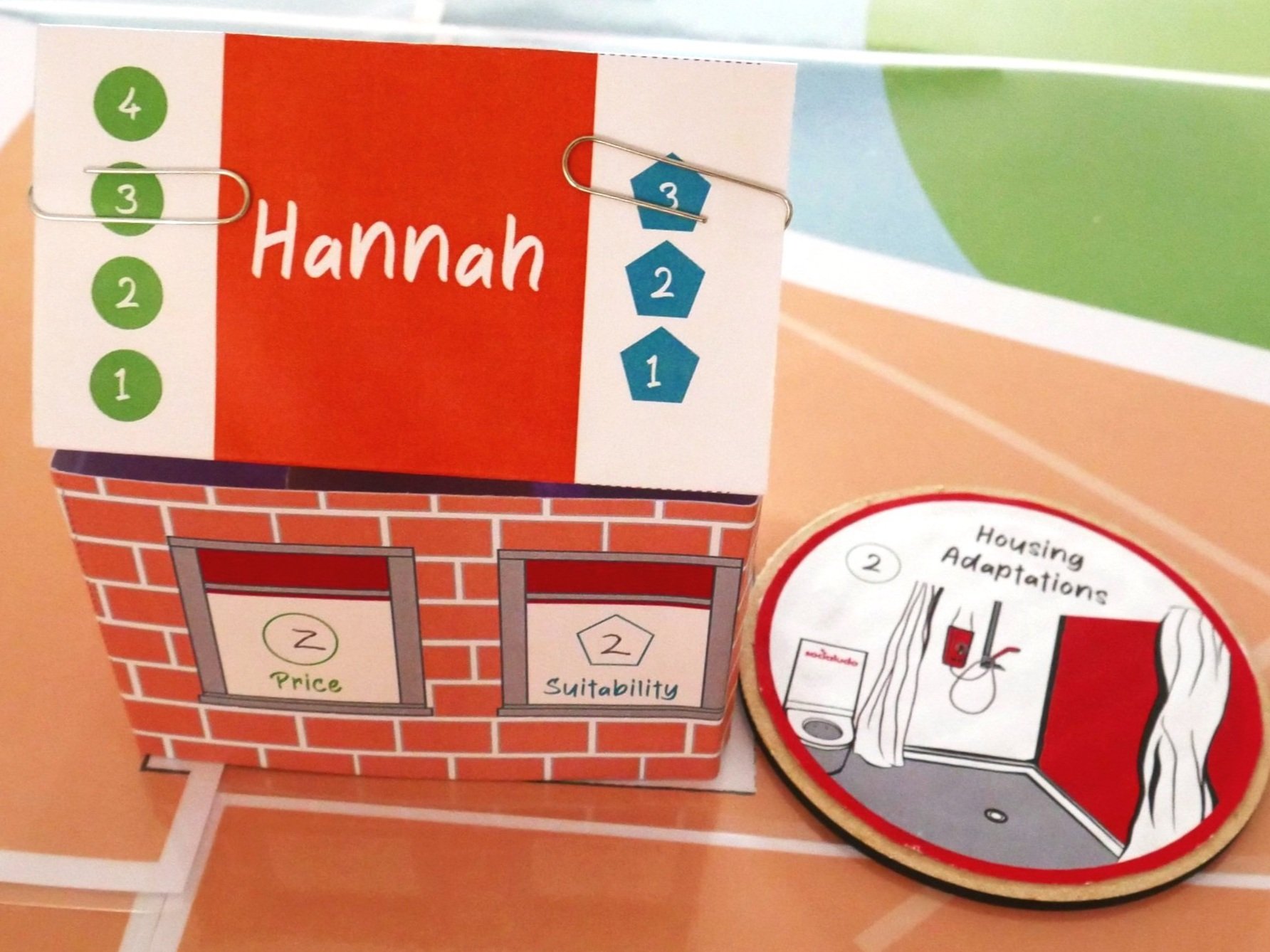What is a
serious
game?
Serious games provide a way for diverse groups to creatively explore problems and together produce solutions that allow people to step outside their everyday roles.
Traditionally they have been used for military war gaming and large-scale emergency preparedness. Increasingly they are being used to engage different groups to support community level planning as they are effective in bridging difference and supporting creativity and co-production. The games are fun to play, and a great way of breaking down barriers. But the subject matter is serious - and the games have the potential to help players to generate new ideas and collaborations, and increase their understanding of the barriers faced by both themselves and others.
Impact and outcomes of playing a ‘Serious Game’
The games work well with groups that don’t usually work together and participants are encouraged to take different perspectives, break down silos between services and find common language. This helps organsiations deliver effective planning around housing, care and service options for communities.
The game will facilitate knowledge exchange by involving participants in taking on different roles across health, social care, housing, planning and community, and managing different scenarios.
The game is designed to emphasise communication and interaction between participants – each role having particular information, either provided as background to the game or, importantly, drawn from participants' own knowledge and experience of the subject. By posing a series of relevant and appropriate challenges to the participants, a useful, open, and unscripted conversation is created.
These conversations form part of the key element of knowledge exchange between participants and are a source of research insights. This happens through a series of game iterations – game 'turns' – where decisions made by the players are reviewed and consequences discussed by participants, including potential for unintended consequences and second- or third-order effects, thus generating insights and shared understanding for future delivery.



